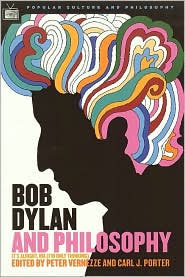 Are you tired of liberals being the only ones who make "in your face" documentaries? Me too. That is why I was so excited about Ben Stein's film "Expelled." Two can play at this game, and Ben has raised the stakes.
Are you tired of liberals being the only ones who make "in your face" documentaries? Me too. That is why I was so excited about Ben Stein's film "Expelled." Two can play at this game, and Ben has raised the stakes.I did not see this film in the theaters, because frankly I do not enjoy going to theaters to see movies. I know, I am goofy, and I don't even own one of those whopper TVs that make the images larger than life. But I prefer watching films in my own home, in my comfortable chair where I have plenty of room and where I can talk in audible levels to my companions and eat whatever I want without being charged a week's pay for a snack. I also like having beverages in containers which are actually sized for the human hand to hold and being able to pause the movie when I need to. So for all these reasons, DVDs are for me. I rented it from Netflix, and then immediately purchased a copy of it so I can loan it out to others and watch it repeatedly. I also wanted to support the filmmakers and the organization from which I purchased it, Answers in Genesis.
I should say up front that I do not endorse the cut and paste tactics of contemporary documentaries. I know that some important material invariably ends up on the cutting room floor, and I am sure that Expelled's critics are being accurate when they say that statements were included out of context and selectively arranged to further the point of the filmmaker. I am also not an advocate of slippery-slope arguments, which this film certainly employs. But at least in this case, the shoe was on the other foot and the tactics were employed to further a far different cause than in Michael Moore's or Al Gore's films. Funny that critics did not seem so adamant about these same concerns when those films came out.
I will also lay all my cards on the table here. I am a 6-literal day, young earth Creationist, and unashamed to say so. I know that labels me as a neanderthal in the minds of some, but I do not lose sleep over their judgment of me. I prefer to prioritize what God thinks of my handling of His word. I may never be asked to teach in a secular university because of those views, but I would rather maintain my convictions with a clear conscience than to be conformed by the patterns of this world's thinking. A professor friend once told me that although he believed the text of Genesis lends itself to a 6-literal day, young earth interpretation, he could not hold that position because it would ruin his academic credentials. I think that is a crying shame, because on all accounts this was stated by a top-notch scholar.
Expelled is not a propaganda piece for young-earth Creationism. It is not even an attempt to prove the truth of Intelligent Design. Ben Stein is not a Christian, and it is fair to say that he is probably not a young-earther. Rather, in Expelled, Stein sets out to uncover a bias against all anti-Darwinian approaches to the study of origins in higher education. This is done by interviewing scholars who have lost their credentials because of their commitment to alternative explanations of origins and interviewing those who are leading the charge of the New Atheism like Richard Dawkins.
Undoubtedly influenced by his Jewish heritage, Stein demonstrates how Darwinian thinking has fueled the most horrid attrocity in recent human history: the Holocaust. It would be a slippery slope to argue that every Darwinian is pro-Hitler. While I would not want to go so far as to say that all Darwinians espouse genocide, the film helps viewers to see how this kind of thinking makes such tragedies possible, and in fact greatly influenced it in one historic case.
The real issue at stake in Expelled is academic freedom. This is a touchy subject for many. After all, Southern Baptists have not exactly been poster children for academic freedom. During the conservative resurgence, professors were fired from SBC seminaries for teaching doctrines contrary to the Baptist Faith & Message. However, these institutions are confessional schools, which are entrusted by the denomination to train up leaders for its constituent churches. Within the rather broad confines of the Baptist Faith and Message, there is room for much diversity in the classroom. In my courses at one of the SBC seminaries, I had professors who held to a variety of positions on many issues. Not all were young-earth creationists; not all were of a particular school of thought when it comes to Calvinism or Arminianism; etc. But there is and should be some expectation that professors in confessional schools will not teach contrary to the confession of faith that they have been consituted to uphold. However, most secular universities do not have a confessional basis, and therefore, each professor's work should be allowed to stand or fall on their own merits. Expelled even indicts Baylor, a historically Baptist college, for disallowing the teaching of anti-Darwinian theories.
I would recommend this film to anyone who is interested in origins, Darwinism, and Intelligent Design, as well as those who are involved as teachers, administrators and students in higher education. My hope is that it will embolden a new generation of scholars to stand up for their own convictions and publish well-defended scholarly works that uphold the integrity of Scripture and refute Darwinian evolution. I also hope that this film will spawn others to go public with their own experiences of educational biases, and raise an outcry against such hypocritical narrow-mindedness. Regardless of our presuppositions or commitments, education should always stand in opposition to such.















